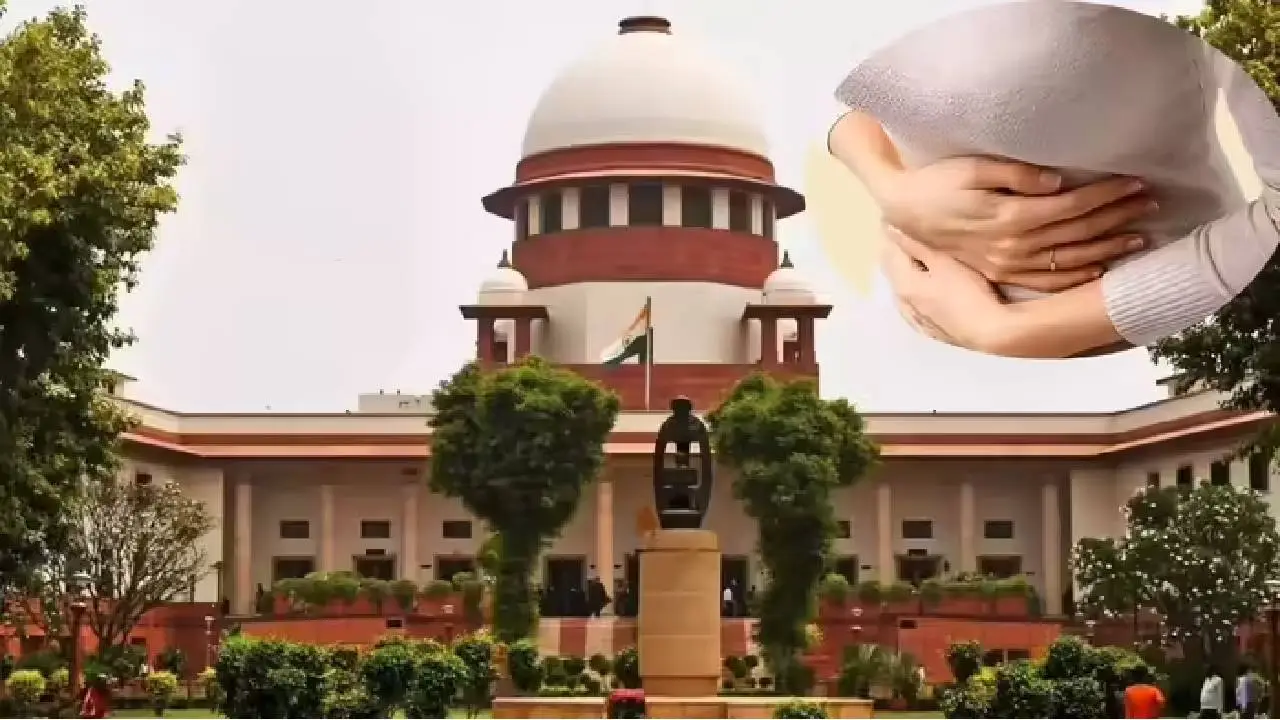
Supreme Court (Credit: OpenAI)
New Delhi: The Supreme Court has reacted sharply to a shocking incident reported from Maharshi Dayanand University in Haryana. According to a petition, female sanitation workers were allegedly asked to show private part photos to prove they were menstruating. The purpose was to justify their inability to work due to physical discomfort. The case shocked the bench led by Justices B V Nagarathna and R Mahadevan. The court issued notice to the Central Government, Haryana Government and the university administration. It observed that such demands reflect a disturbing mindset against women. The court said they hope this petition will lead to positive change.
As per the complaint, three female workers reported that supervisors forced them to work even after they said they were unwell due to menstruation. They allegedly asked them to provide photographs of their private parts to prove their condition. These women said if they refused, they were threatened with termination. The incident reportedly happened on 26 October, just hours before a scheduled visit by the Haryana Governor to the campus. It was claimed that this pressure was to ensure full cleanliness ahead of the inspection. The story has sparked national outrage and raised questions on basic dignity at workplaces.
Police confirmed they have registered a case against three people linked to the university. FIR includes charges of criminal intimidation, sexual harassment, assault on a woman and outraging her modesty. Officials stated that two supervisors were suspended after complaints. They were reportedly hired on contract through Haryana Skill Employment Corporation. The university announced an internal investigation is underway. One accused named Shyam Sundar denied giving such instructions. However, complainants state that supervisors claimed they were acting on his orders. The matter is now under legal review and court has set hearing for 15 December.
Justice B V Nagarathna expressed serious concern about the mindset behind such actions. She said in Karnataka they grant leave during menstruation. She added, does that mean proof will now be demanded for applying leave? The comment highlighted a deep cultural issue regarding women’s privacy. The court stressed that if heavy duties were affected, alternate arrangements could have been assigned. Forcing such proof from women is unacceptable. The bench hopes this case will inspire practical guidelines for workplaces. The court wants steps to ensure dignity and health rights of women are protected.
Legal experts say this case may set a landmark precedent. Guidelines for work policies during menstrual periods may be formed. Petitioners have requested that government create systems to prevent such abuse. They seek protection of privacy, physical autonomy and health rights of women. The Bar Association president Vikas Singh called this a serious criminal matter needing urgent attention. If proven correct, the accused may face strong legal action. The case may encourage stronger laws around workplace harassment and dignity. It has become an important test case for gender sensitivity.
The university said they suspended two supervisors and started internal inquiry. They claimed complete cooperation with investigation. They denied involvement of senior officials but assured that action will be taken if responsibility is established. Workers alleged that despite informing about their health, they were forced to work. They said they were humiliated when they refused to show photos. Some are scared to return to duty. Labour unions have demanded stronger protection measures. The case has created serious image damage for the institution.
Activists say this incident reflects a larger problem of ignorance about women's health. It shows lack of sensitivity at certain workplaces. Supreme Court may push for national policy regarding menstrual leave and privacy protection. Government has been asked to reply before next hearing on 15 December. If clear guidelines come out, it may change workplace rules across India. This case is not just about one university, it is about mindset change. The nation is watching what steps are taken next. The matter may become turning point for women's dignity rights.








Copyright © 2026 Top Indian News
